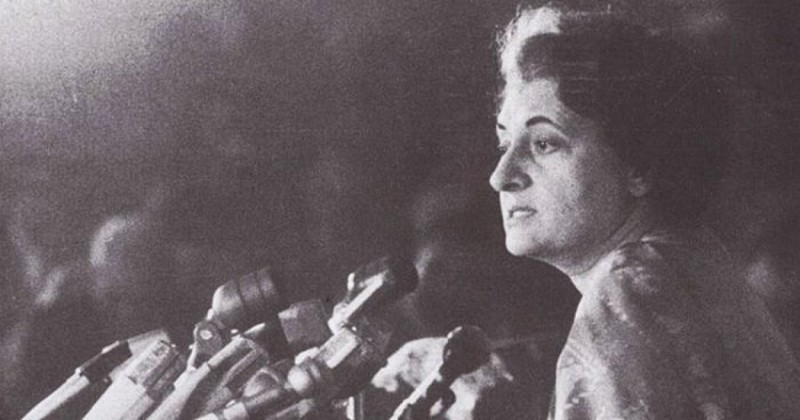
#Dark Chapter Indian History: The Emergency of 1975 -On June 25, 1975, Indira Gandhi's government declared a state of emergency in India, plunging the nation into a period marked by significant curtailment of civil liberties and democratic processes. This emergency lasted until March 21, 1977, when democracy was eventually restored.
At the urging of then Prime Minister Indira Gandhi, President Fakhruddin Ali Ahmed invoked Article 352, declaring an internal emergency. The announcement, made at midnight, shocked the nation and was seen as a direct assault on democracy. This marked the third time a national emergency was declared in India, the previous instances being during the wars with China and Pakistan in 1962 and 1971, respectively.
Indira Gandhi had secured a significant electoral victory in 1971, buoyed by her pro-poor policies such as the nationalization of banks and the abolition of the Privy Purse. However, her administration soon faced several challenges, including a declining GDP post the 1971 war, widespread droughts, an oil crisis, and rising unemployment.
In 1974, a railway workers' strike led by George Fernandes was brutally suppressed. Additionally, the government was accused of meddling in judicial affairs. The Allahabad High Court found Gandhi's election to the Lok Sabha void due to electoral malpractice. This ruling further fueled political unrest.
Amid escalating tensions, Janata Party leader Jayaprakash Narayan called for the government's ouster and advocated for a "total revolution" (Sampoorna Kranti). He urged the police and military to disregard unconstitutional orders. In response, Gandhi declared the emergency and swiftly detained prominent opposition leaders, including Narayan, Morarji Desai, Charan Singh, and Acharya Kripalani. Even dissenting Congress members were arrested.
During the emergency, civil liberties were severely restricted, and press freedom was curtailed, with all publications requiring approval from the Information and Broadcasting Ministry. Sanjay Gandhi, Indira Gandhi's son, wielded significant unofficial power and enforced a controversial mass sterilization campaign to control the population. Non-Congress state governments were dismissed, and many slums in Delhi were demolished.
Human rights abuses were rampant, with curfews imposed and detentions without trial. The government also amended the constitution multiple times, though these changes were later reversed by the succeeding administration. The emergency period is often referred to as the "darkest hour" of free India.
In January 1977, sensing an opportunity to legitimize her rule, Gandhi called for elections, misjudging the public sentiment. Political prisoners were released, and the emergency officially ended on March 21, 1977. The electorate decisively rejected Gandhi and her party, resulting in a landslide victory for the Janata Party. Morarji Desai became India's first non-Congress Prime Minister.
MP Govt Allocates Funds for NEVA, Controversially Plans Challenger 3500 Jet Purchase
India to Remain World's Most Populous Country Through 2100, Says UN